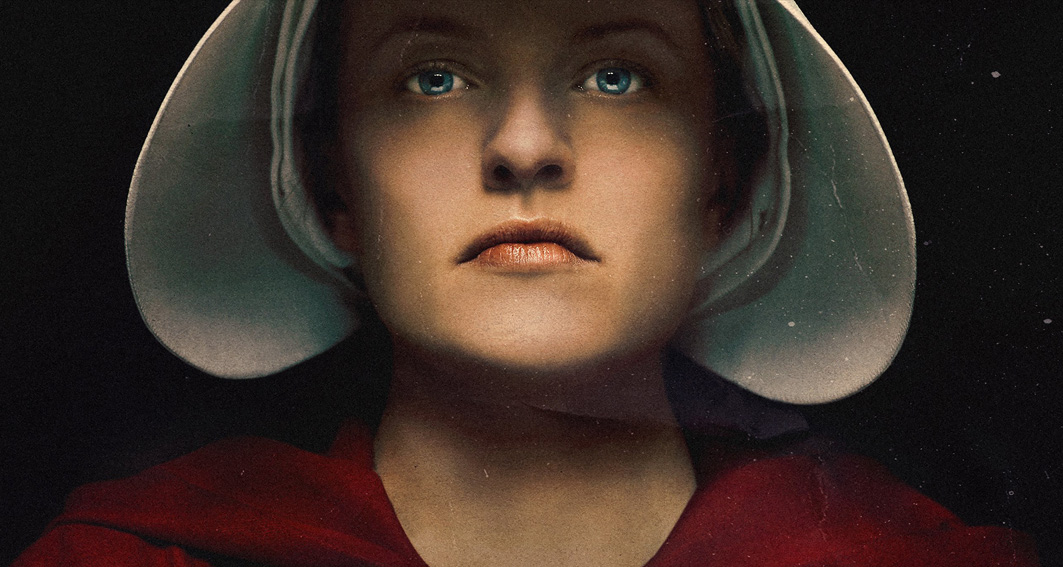There are certain shows that seem to dominate the watercooler conversation, but not always for the right reasons. The Handmaid’s Tale is one of those shows. Debuting in 2017, it has inspired many pro-abortion advocates to come to any abortion event, legislative hearing, or protest dressed up in a white puritan style hat and a red cape like the female characters in the series. The imagery is now so common it has become a bit tedious and repetitive, but there is nothing trivial about what The Handmaid’s Tale is trying to say about Christianity and America.
When Margaret Atwood, the author of the book on which the television show is based, first started writing she was staying in Cold War Berlin and witnessing first-hand the occasionally aggressive actions of Soviet-controlled East Germany. In describing how she wrote her novel, Atwood said that she wanted to make sure that the she did not put any “events into the book that had not already happened.” Needless to say, she failed in many respects.
The Handmaid’s Tale tells the story of a dystopian type future where the United States has been decimated by a civil war. In this chaotic and unstable world, a new totalitarian theocracy is developed. Atwood clearly uses Christianity, the Bible and Puritanism as the basis for this government, but its portrayal is twisted at best. Inspired partly by the story of Jacob, Leah, Rachel and their handmaidens, Atwood created a world where women are imprisoned, tortured, and ritualistically raped so they can bear children for the country’s leadership after fertility rates drop. Even the name of this new country, Gilead, is a physical location referenced in Genesis 31 and Jeremiah 8.
While the work might have received some inspiration from the Genesis passage, what goes on in the series is a deliberate perversion of the biblical text and intention. Women are systematically abused throughout the series, often in graphic detail according to reports and reviews (I’ve never watched the series myself). Some of the content is so disturbing and mentally exhausting that the series is reportedly difficult to watch.
The story may cement the world view of radical liberals and abortion activists who believe that Gilead is the future if fundamental Christianity (a vague term at best) and the patriarchy dominate the federal government, but it has absolutely nothing to do with Christian theology or practice. Atwood should know, as someone who spent time in Berlin during the Cold War, it is secularism and communism that destroys societies and not Christianity.
But instead she and television producers have created a world that continues to feed the illogical fears of radical feminists who believe that Gilead is somehow the future if pro-life legislation gains a foothold. According to some pro-abortion activists, any pro-life legislation is meant to keep women subjugated and under the control of the patriarchy. It’s a ridiculous notion, but that is what they believe and what the television series in many ways encourages.
The show also mocks Puritanism through the depiction of the handmaidens and the government. Despite the fact that Puritan ideals helped found and shape this country, Atwood remakes their memory as one of oppression. Harvard, a university and one-time seminary founded by Puritans, was influential as the one setting of Atwood’s novel and is where the Gilead’s Secret Police is based. While 21st century may find Puritanism oppressive or out of touch with these progressive times, those Christian leaders influenced American individualism, mutual respect, self-reliance, and a respect for education. The creators of The Handmaid’s Tale owe a lot to the Puritans, but their contribution to history is seemingly ignored because of their belief in things like family and traditional marriage.
Atwood’s novel and the television series seems to have a clear objective, to show Christianity and the history of American Puritans in the worst light possible. These groups are shown as oppressive, violent, controlling and the antithesis of liberty. It’s a cheap ploy by the creators and shows their ignorance of both the Christian faith and this country. The Puritans were far from perfect, but the values that they instilled in this country still continue to resonate to this day.
The Handmaid’s Tale wants to diminish that influence, in order to replace it with secularism and abortion on demand. If the country adopts those measures then Gilead is truly in the future, but the target for oppression won’t be women or gay-identified people as it is in the television series. It will be anyone who does not agree with the ruling progressive movement and government that see faith and history as something to change or destroy in order to fulfill a certain ideology.
Photo from Amazon






